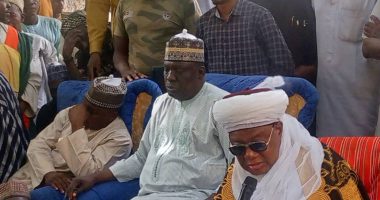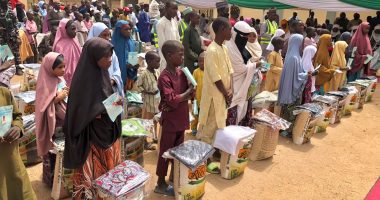
The United Nations, UN has defined human trafficking as the recruitment, transportation, transfer, harboring, or receipt of persons by means of threat or use of force or the other forms of coercion, abduction, fraud, or deception.
Scholars are of the view that human trafficking is a form of modern-day slavery that involves the illegal trade of people for exploitation or commercial gain.
Therefore, Trafficking is often understood primarily in relation to sex work but can also occur for a range of exploitive activity including domestic servitude, forced labour, forced begging, or criminal activities such as pickpocketing and the exploitative use of children for the benefit of fraud.
Research by the World Bank in 1995 identified poverty, ignorance, and family size as some of the major catalysts to human trafficking.
Nigeria is a party to the protocol to prevent, suppress and punish trafficking in persons, especially women and children. Supplementing the united nations convention against transnational human rights violations.
The country also ratified other international instruments which have provisions that can apply by extension to the protection of the human rights of trafficking in persons, including the convention for the elimination of all forms of discrimination against women.
Meanwhile, section 34 of the 1999 constitution of the federal republic of Nigeria guarantees the right to the dignity of the human person.
To address the issue of trafficking in Nigeria, the National Agency for the Prohibition of Trafficking in Persons (NAPTIP) was established with the mandate of prevention, protection, prosecution, and partnership to eradicate human trafficking.
With the advent of the COVID-19 pandemic, human traffickers have shifted from physical recruitment of their victims to virtual recruitment through virtual assessment of victim and proxy negotiation.
However, the Director-General of NAPTIP, Dr. Fatima Waziri–Azi, said the 2022 counter-trafficking strategic approach of the agency was aimed at ensuring the protection of Nigerians from human trafficking and other forms of exploitation, online and offline.
“It is a known fact that human trafficking has continued to evolve in line with globalization, especially with technology, traffickers have kept pace with technology by using the World Wide Web (www) for their operations.”
“This modus of Operandi is prominent with the advent of the COVID-19 pandemic. There is a shift from physical recruitment to virtual recruitment through virtual assessment of victim and proxy negotiation,” she said.
According to her, “This database shall enable NAPTIP to have access to vital information of perpetrators who use social media platforms to electronically distribute pornographic materials to either blackmail or exploit children. “
Dr. Fatima Waziri–Azi, maintained that the arrest and prosecution of high profile human traffickers operating both within and outside Nigeria remain one of the Agencies strategic priorities as this will serve as a deterrent to others as well as reduce the level of impunity and ensure satisfactory justice delivery to victims of human trafficking.”
Similarly, the Northwest Zonal commander of the Agency, Ibrahim Babale who spoke to Radio Nigeria said the agency had recorded tremendous achievements in the fight against human trafficking and other similar offenses.
He maintained that the NAPTIP trafficking in-person act of 2015 had set aside stiffer sanctions for those found guilty.
In this regard, stakeholders are of the view that the Nigerian government must ensure that activities of NAPTIP receive sufficient funding, particularly for prosecuting trafficking offenders and providing adequate care for victims.
Khadija Aliyu; Kano







